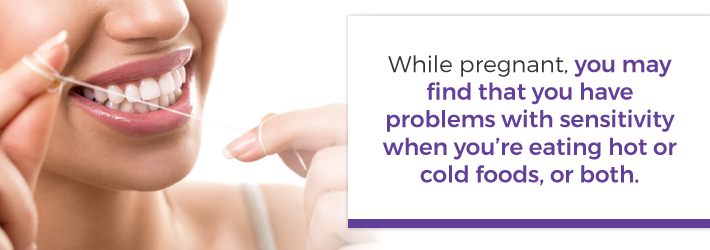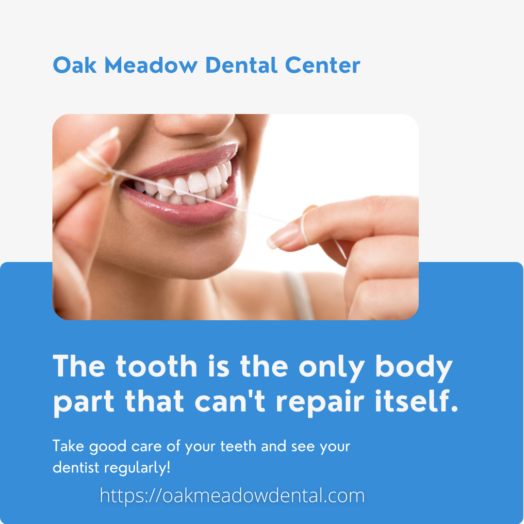
Pregnancy is a wonderful period in a woman’s life when the awareness of the importance of health and body care increases. During pregnancy, the level of hormones in the body increases, which brings with it numerous changes, but also possible problems. Precisely because of the change in hormonal status, teeth in pregnancy require special care. An increased risk of caries and a tendency to gingivitis are just some of the problems that can occur when a woman is pregnant.
Read in the text how to keep your teeth healthy during pregnancy and what to do if a breakdown does occur.
Why oral hygiene is especially important in pregnancy
Taking care of the cleanliness and health of teeth and gums during pregnancy should be one of the priorities. Proper and regular oral hygiene is actually the best way to prevent tooth decay and periodontal disease. Brush your teeth carefully twice a day for two minutes. Use fluoride toothpaste and softer toothbrushes with a small head, because the gums can be especially sensitive during pregnancy. If you are not sure whether you are successfully removing dental plaque for tooth surfaces, consult your Los Gatos Dentist for advice.
Use dental floss
Using dental floss at least once a day can help you keep your teeth clean. You can use floss to remove food debris between your teeth that the brush does not reach. If you use mouthwash, choose one that does not contain alcohol.
Avoid sugary foods and drinks
Avoid drinking sugary drinks such as fizzy drinks or sweetened tea too often. It is also advisable not to eat sweets and snacks. If you feel hungry between meals, do not reach for biscuits or chocolate. Rather, eat some fruit, fresh vegetables or drink a cup of yogurt.
No cigarettes in pregnancy
If you are a smoker, quit smoking. Smoking leaves negative consequences on the health of pregnant women and babies. This includes an increased risk of gingivitis and periodontitis.
Teeth and morning sickness
Morning sickness and vomiting are not friends of the teeth. Be sure to rinse your mouth with plain water after vomiting. In this way, you will remove the acid, prevent the growth of bacteria and thus save your teeth from possible damage.
Brushing your teeth immediately after vomiting while your teeth are still covered with stomach acid is not recommended. This is because the strong action of the brush in combination with the acid can damage the enamel. Postpone brushing your teeth for at least an hour.
With proper hygiene at home and the professional help of your dentist, your teeth should stay healthy during pregnancy.
Tooth loss in pregnancy is a myth
One of the biggest myths about teeth and pregnancy is the one about terrible tooth loss. It is very important to say that pregnancy does not automatically damage your teeth. The story of how the baby draws all the calcium from the mother’s teeth, and that they spoil and fall out because of that, is not true. In fact, if the mother’s calcium intake is not enough during pregnancy, her bones – not her teeth – will provide the amount that the baby needs in the womb. This loss of calcium is quickly compensated after stopping breastfeeding.
Tooth loss is actually a terrible consequence of periodontitis, a disease of the supporting apparatus of the teeth, which begins with inflamed gums and – poor oral hygiene.
Inflammation and bleeding gums in pregnancy
Pregnant gingivitis is one of the most common dental problems that pregnant women suffer from. During pregnancy, the level of the hormone progesterone is high. This increase leads to the development of bacterial plaque that attacks the gums. Women who had gum problems before conception have a greater tendency towards gingivitis during pregnancy.
Gingivitis usually occurs during the second trimester, and symptoms include swollen gums and bleeding, especially during brushing. The gingiva changes its color, so instead of light pink, it becomes very red, and in some cases it even has a blue shade. In addition to being swollen, the gingiva is sensitive to pain and bleeds to the touch.
Blood in the sputum is already a serious signal to contact your dentist. When you react in time and start treatment, then there is no danger of gum withdrawal, as well as the development of periodontitis.
The first step that is taken is intensive gingival care. Gum soothing gels, mild mouthwashes, as well as regular and proper brushing of teeth are the best and safest way to healing.
Unlike other problems that occur in pregnancy due to elevated hormone levels, gingivitis often does not go away on its own after childbirth. That is why it is very important to consult your dentist after giving birth.
Important note: Bleeding gums in pregnancy can often be frightening. However, you should never stop brushing your teeth despite the pain and blood. Instead of hard and sharp brushes, choose the one with soft bristles and brush your teeth intensively and patiently, until you remove all the deposits. Only in this way will the bacteria from dental plaque not maintain inflammation and cause other dental diseases such as caries or periodontitis.
Tooth repair in pregnancy
Can I fix a tooth in pregnancy? This is a question that trudders are most often placed on their gynecologist and dentist. Caries in pregnancy is not a rare occurrence, and when a tooth hurts a lot, it is much smarter to do the repair, but to suffer pain.
The ideal time for all dental interventions is the second trimester of pregnancy, when organogenesis is complete, that is, when all the organs of the fetus are formed. However, emergency treatments and repairs can and should be done at any gestational week.
Interventions on the teeth are not recommended in the third trimester, and the reason for that mainly lies in the position on the dental chair, which is uncomfortable for pregnant women. However, postponing dental care after childbirth can be problematic, because new mothers are focused on caring for their newborn.
Tooth extraction in pregnancy
Tooth extraction during pregnancy is usually the last choice of the dentist, who will always try to save the tooth if possible. However, when a tooth is excessively affected by caries in order to repair it, it should be removed in order to preserve oral health.
Tooth extraction can also be done during pregnancy, although dentists generally do not recommend them due to possible pain and stress that can be harmful for the pregnant woman and the baby. However, in case of infection or gingivitis, tooth extraction should be considered. The question here is: when is the best time to remove a tooth during pregnancy?
First trimester
Since the first trimester is crucial for the development of the baby, dental procedures should be avoided during that period. In case you have problems with your teeth, dentists will recommend taking herbal medicines, as well as regular oral hygiene.
Second trimester
The second trimester of pregnancy is considered the safest period for tooth extraction, because by that time most of the baby’s organs have developed. At the same time, you avoid X-rays in the first trimester.
Third trimester
Lying in a dental chair in an advanced pregnancy can be an unpleasant experience, and dentists do not recommend extracting teeth after the seventh month. If you feel intense pain that makes tooth extraction inevitable, the first month of the third trimester is usually considered safe. Otherwise, it is better to postpone the intervention after the birth.
Anesthesia for tooth in pregnancy
If you are pregnant and need to have a tooth extracted, it is quite certain that you will be worried about anesthesia. However, numerous medical studies have shown that anesthetics do not pose a danger to the health of pregnant women and babies. Treatments that include anesthesia are safe during pregnancy, do not create a risk of miscarriage, birth defects, premature birth, nor do they affect the weight of the baby.
In addition to tooth extraction, there are other dental procedures that are an indication for anesthesia, such as root canal treatment, for example. The dentist will use the lowest possible concentration of anesthesia for the type of procedure being performed, but still enough to help you relax. Painless tooth extraction means less exposure to stress, and that is of the greatest importance for pregnant women and babies.
X-ray in pregnancy
Contrary to popular belief, X-rays in pregnancy are completely harmless and do not affect the development and well-being of the baby. This short and painless procedure is necessary when you are preparing for tooth extraction, but also when you need to do root canal treatment or determine the direction of wisdom tooth growth. Thanks to the protective apron, exposure to X-rays during shooting is minimal, and there is no danger to your health. However, as a precaution, dentists avoid imaging in the first trimester when vital fetal organs are generally developing.
Wisdom tooth growth in pregnancy
Wisdom teeth are often responsible for many dental problems. Despite regular oral hygiene, it is very likely that you will not be able to clean them thoroughly due to their inaccessibility. Also, wisdom tooth growth can be an extremely painful experience, and if the direction of growth is incorrect, removal may become necessary. Since wisdom tooth extraction is an invasive surgical procedure, it is best to do it after childbirth.
What to do if your wisdom tooth grows during pregnancy? It can be extremely uncomfortable and stressful to suffer pain without being able to take an analgesic. Consult your doctor and consider all your options. Regular visits to the dentist who monitors the condition in the mouth is the best prevention of potential complications.
How to save teeth in pregnancy?

Now that we have shattered the myth of the obligatory loss of teeth in pregnancy, it is clear that the concern about oral health is unfounded. Although every pregnancy is different, there are steps that you must take if you want healthy teeth. First of all, there is proper and regular oral hygiene, a balanced diet and regular visits to preventive dental examinations.
Even if, in spite of everything, certain problems appear, such as caries or gingivitis, there is no reason to panic. All dental procedures performed in the second half of the second trimester, as well as in the entire third trimester, are generally harmless.
If you have noticed bleeding gums during pregnancy, you have a toothache or you just want to check in which condition.
Visit our office in Los Gatos, Ca to talk about all your doubts. Together we will find the solution that best suits you and your baby.
Read More:
